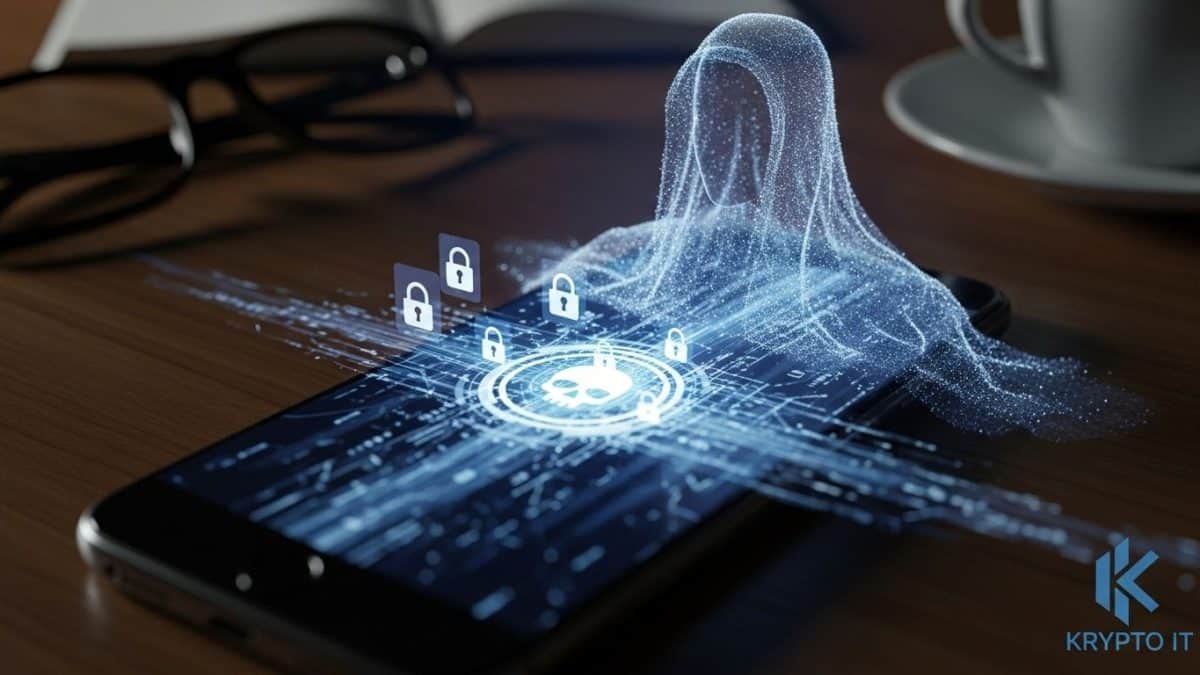
Your Employees Are Your Strongest (or Weakest) Link: Building a Security-Aware Culture
November 5, 2025
The Principle of Least Privilege: Giving Employees Only the Keys They Need to Do Their Job
November 7, 2025For many small to medium-sized businesses (SMBs) in Houston, the Bring Your Own Device (BYOD) trend started as a way to save money and boost employee morale. Allowing team members to use their own smartphones, tablets, and laptops for work is undeniably convenient: it cuts hardware costs, reduces training time, and lets people work on the devices they know and love.
However, BYOD introduces a hidden, complex security risk that is exponentially greater than any cost saving. When a personal phone or laptop connects to your network, it brings along years of unknown security history—old operating systems, free software, unsecured home Wi-Fi exposure, and potentially malicious personal apps.
The question is no longer if you allow BYOD, but how you secure it. At Krypto IT, we recognize the business value of flexible work, but we prioritize safeguarding your corporate data. This guide breaks down the conflict between personal convenience and professional security and outlines the non-negotiable protections your business needs.
The Invisible Threat: Why Personal Devices are Riskier
A business-owned device is a known quantity: you control the operating system (OS), the installed software, the security configurations, and the update schedule. A personal device is the wild west. Here are the core security conflicts created by BYOD:
1. Lack of Patching and Outdated Operating Systems
Many users habitually ignore software updates on personal devices (phones, tablets, laptops) because they are inconvenient. These updates, however, are security patches that close known vulnerabilities. When an unpatched personal device accesses corporate email or cloud data, it becomes a wide-open door for hackers to breach your network using an exploit that was patched months ago.
2. The Cloud of Data Leakage
Personal devices mix personal and corporate data effortlessly. If an employee is using a company document, they can accidentally sync it to a personal, unsecured cloud storage account (like a free tier of Dropbox or Google Drive), or simply email it to a personal address. The moment that corporate data leaves your managed environment, you lose all control, violating data privacy mandates like HIPAA or PCI DSS.
3. Public Wi-Fi and Unmanaged Connections
Remote and traveling employees frequently connect their BYOD devices to public Wi-Fi networks at coffee shops, airports, and hotels. These networks are often unsecured, allowing hackers using simple tools to intercept data, capture login credentials, or even inject malware onto the device, which then infects your company network when the employee logs in later.
4. Malware and Unsanctioned Apps (“Shadow IT”)
Personal devices are often used for high-risk activities like downloading games, torrents, or unvetted freeware. These apps can contain hidden malware, keystroke loggers, or spyware. When these compromised devices access sensitive company resources, that malware is essentially granted a secure, internal path into your entire business infrastructure.
The Modern Solution: Enforcing Policy Through Technology
You don’t have to choose between BYOD and security, but you absolutely cannot choose convenience over security. The solution lies in centralizing control over the data and access, not the device itself.
1. Mobile Device Management (MDM) is Non-Negotiable
MDM software is the single most important tool for managing the BYOD dilemma. It allows Krypto IT to:
- Enforce Encryption: Mandate that all business-accessing devices use full-disk encryption.
- Segregate Data: Create a secure, containerized environment on the employee’s personal device for all work-related apps and files, keeping them separate from personal photos or games.
- Remote Wipe: If a device is lost, stolen, or if an employee leaves the company, we can remotely wipe only the corporate data container, leaving the employee’s personal files intact.
- Enforce MFA: Mandate the use of Multi-Factor Authentication for all corporate access, regardless of the device.
2. Strong Acceptable Use Policies (AUPs)
An AUP must be clear, mandatory, and signed by every employee. It must clearly define:
- Allowed Devices: Which specific types of devices (OS version minimums) are permitted to connect.
- Prohibited Activities: What actions, software, and websites are forbidden when accessing corporate resources.
- Compliance: The employee’s absolute responsibility to keep their device patched and to immediately report loss or compromise.
3. Require Corporate VPN Access for All Remote Work
Never allow employees to access sensitive resources over an unmanaged connection. Krypto IT mandates and configures a Virtual Private Network (VPN) tunnel for all remote work, encrypting all data transmitted between the employee’s device and your network, regardless of the security (or lack thereof) of their home or public Wi-Fi.
Krypto IT: Securing Your Flexible Workforce
For an SMB to successfully implement a secure BYOD policy, it takes constant monitoring, immediate response capabilities, and technical enforcement. This level of effort is often impossible for internal teams stretched thin across multiple roles.
Krypto IT specializes in managing the complexities of the modern, flexible workplace for Houston businesses. We provide:
- MDM Implementation: We set up, manage, and enforce all Mobile Device Management policies across every employee-owned device accessing your network.
- Compliance Monitoring: We continuously monitor device status to ensure required security policies (MFA, encryption, patching) remain active.
- Data Protection: We ensure proper data segregation and have remote wipe capabilities ready to deploy the moment a security incident or employee termination occurs.
Don’t let the convenience of BYOD become the vulnerability that costs you your business. Partner with Krypto IT to establish the policies and technological safeguards needed to keep your flexible workforce productive and, most importantly, secure.
Ready to gain control over your employee devices? Contact Krypto IT today for a free consultation on implementing a comprehensive BYOD security policy.




